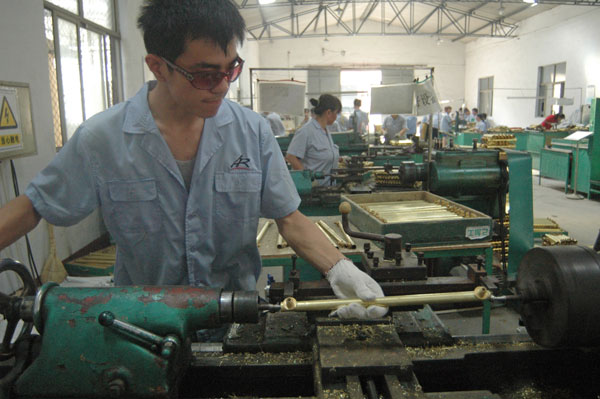China, ASEAN vow further cooperation in education
Updated: 2015-08-04 17:29
By Zhao Xinying and Yang Jun in Guiyang, Guizhou province(chinadaily.com.cn)
|
|||||||||||
China and the Association of Southeast Asian Nations will cooperate further in education, officials said during the eighth China-ASEAN Education Cooperation Week.
The Cooperation Week, which kicked off on Monday in Guiyang, capital of China's Southwest Guizhou province, is one of China's most important exchange mechanisms with ASEAN and has been held in the city seven times since 2008.
Chen Min'er, Party Chief and governor of Guizhou province, said at the opening ceremony of this year's Cooperation Week that the mechanism is a platform to improve the globalization of education, as well as a way to get involved in the "One Belt and One Road" initiative, which was launched by Chinese President Xi Jinping.
"We would like to make full use of the platform to explore new approaches of conducting educational cooperation, share experience of nurturing talent and meanwhile contribute to closer bilateral ties with ASEAN," Chen said.
Yuan Guiren, Chinese education minister, said the education standard of ASEAN has been rising in recent years.
"We would like to know and learn from ASEAN's experience of boosting education, and in the meantime improve education in China by working together with the ASEAN," he said.
Themed "learn from each other to make a better future", this year's Cooperation Week focused on a series of exhibitions, seminars and negotiations in fields including higher education, vocational training and cooperative education.
Statistics from the Chinese Ministry of Education showed that more than 300,000 students from ASEAN countries are currently studying in China and about 126,000 Chinese students studied in Southeast Asian countries during 2010 to 2014.
The year 2014 alone, Yuan said, saw 70,000 Southeast Asian students studying in China.
Yuan said universities of China have opened linguistic majors that cover all the languages of Southeast Asian nations and have set up 30 Confucius Institutes and 30 Confucius classrooms in the 10 countries of the ASEAN.
"More and more people from the younger generations from both sides are learning each other's language and culture," he said.
Yuan also said educational exchanges between China and the ASEAN will become more frequent in 2016, as the year will mark the 25th anniversary of the dialogue.
"We are discussing to make 2016 a year of China-ASEAN educational exchanges," Yuan said.
Zeng Jun and Dong Xianwu in Guiyang contributed to this story.
Today's Top News
Former British PM named in allegations of child sex abuse
Obama issues challenge on climate change
Erdogan pledges to fight back as PKK steps up attacks
AIIB, Silk Road parts of China's strategy to benefit the world
Overseas journalists invited to cover China's V-Day celebrations
Greek market tumbles after five-week shutdown
Malaysia seeks international help in search of MH370
French, Malaysian experts meet for MH370 probe
Hot Topics
Lunar probe , China growth forecasts, Emission rules get tougher, China seen through 'colored lens', International board,
Editor's Picks

|

|

|

|

|
|






